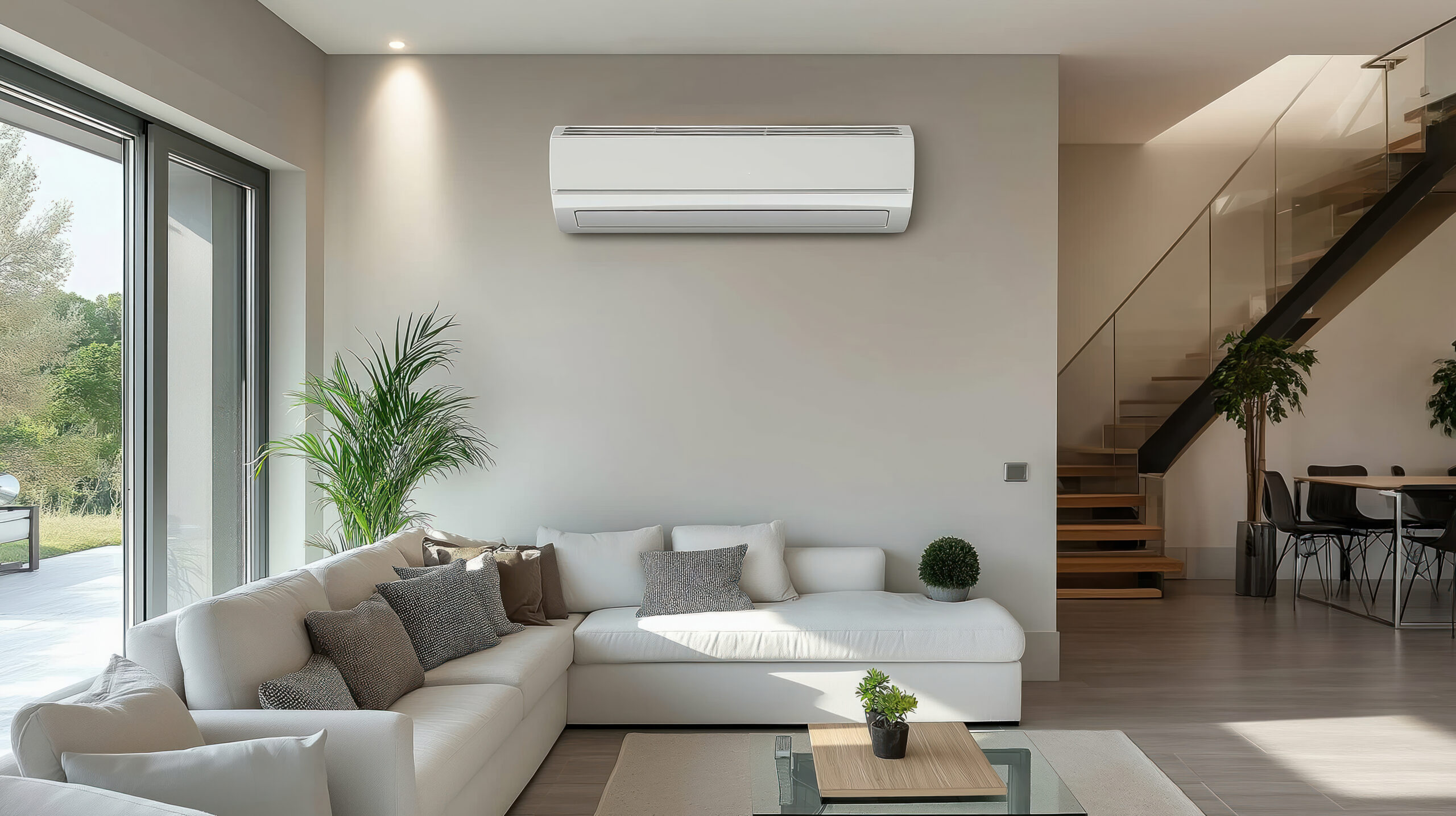
Choosing the Right HVAC System for Your Home
When it comes to keeping your home comfortable year-round, choosing the right HVAC system is one of the most important decisions you can make. Whether you’re building a new home, upgrading an outdated system, or simply looking for a more energy-efficient option, finding the right heating and cooling solution is crucial. With so many choices available, from central air systems to ductless mini-split units, it can be overwhelming to determine the best fit for your needs. In this guide, we’ll walk you through the key factors to consider when selecting the ideal residential HVAC system for your home. Assessing Your Home’s Needs Before exploring specific HVAC options, it’s essential to assess the unique characteristics of your home. Not all systems are one-size-fits-all, and the right choice depends on several factors, including: Size and Layout: The square footage and layout of your home play a significant role in determining the appropriate HVAC system. A system that is too small won’t effectively maintain the appropriate temperature, while one that is too big will be less efficient due to frequent cycling. Climate and Weather: If you live in an area with extreme temperatures, you may need a system designed to handle heavy heating or cooling demands. For instance, heat pumps are a great choice for moderate climates but may need backup heating in colder regions. Insulation and Energy Efficiency: Well-insulated homes retain heat better in the winter and stay cooler in the summer, reducing the workload on your HVAC system. Ensuring your home is properly insulated can help you get the most out of your heating and cooling equipment. Types of HVAC Systems Understanding the different types of HVAC systems available can help you make an informed decision. Here are some of the most common options for residential HVAC: Central Air Conditioning & Heating A traditional central HVAC system includes an air conditioner and a furnace. This setup is ideal for whole-home comfort, efficiently heating and cooling every room through a network of ducts. If your home already has ductwork, a central system may be the most convenient choice for HVAC installation. Ductless Mini-Split Systems For homes without existing ductwork or for those who want zoned temperature control, a ductless mini-split system is a fantastic option. These units have an outdoor compressor like most HVAC systems along with one or several indoor air-handling units to give you precise temperature control in individual rooms. Ductless mini-splits are energy-efficient and can significantly lower utility bills compared to traditional systems. Heat Pumps A heat pump is an energy-efficient alternative to traditional heating and cooling systems. Unlike furnaces, which generate heat, heat pumps transfer heat from the outside air (or ground) into your home during the winter and reverse the process in the summer. Heat pumps work best in moderate climates but can be paired with auxiliary heating for colder regions. They are an excellent choice for homeowners looking for an eco-friendly HVAC solution. Furnaces & Boilers Furnaces and boilers are common heating solutions for residential HVAC systems. Furnaces heat air and distribute it through ductwork, while boilers heat water and provide radiant heat through pipes or radiators. Gas furnaces are among the most popular heating options due to their efficiency and reliability. If you have an existing furnace, upgrading to a high-efficiency model can provide better comfort while reducing energy costs. Hybrid Systems Hybrid systems combine a heat pump with a furnace to provide efficient heating and cooling throughout the year. These systems automatically switch between the heat pump and furnace, depending on the outdoor temperature, to optimize energy efficiency. If you’re looking for a cost-effective and environmentally friendly HVAC solution, a hybrid system might be worth considering. Energy Efficiency and Cost Considerations Energy efficiency is one of the most important factors when choosing an HVAC system. Higher efficiency means lower energy consumption, reduced utility bills, and a smaller environmental footprint. Here’s what to look for: SEER (Seasonal Energy Efficiency Ratio): This rating measures an air conditioner’s efficiency. The higher the SEER rating, the more energy-efficient the unit. AFUE (Annual Fuel Utilization Efficiency): This rating applies to furnaces and indicates how efficiently the unit converts fuel into heat. A higher AFUE percentage means better efficiency. HSPF (Heating Seasonal Performance Factor): This rating measures a heat pump’s heating efficiency. A higher HSPF rating means better performance and energy savings. Many states offer rebates and incentives for homeowners who choose high-efficiency HVAC systems, so be sure to check for local programs that can help offset the cost of HVAC installation. Smart Features & Technology Modern HVAC systems come with a variety of smart features that enhance convenience and efficiency. Some of the latest advancements include: Programmable & Smart Thermostats: These devices allow you to control your HVAC system remotely and set schedules to optimize energy usage. Zoning Systems: Zoning allows you to heat or cool specific areas of your home independently, reducing energy waste and improving comfort. Air Purification & Humidity Control: Advanced HVAC systems can include air purifiers, dehumidifiers, and humidifiers to improve indoor air quality and overall comfort. Professional Installation and Maintenance Proper HVAC installation is crucial to ensuring optimal performance and longevity. A poorly installed system can lead to inefficiencies, frequent breakdowns, and higher energy bills. That’s why it’s essential to choose a reputable HVAC services provider with experience in residential HVAC installation. Regular maintenance is also key to keeping your system running smoothly. Here are a few tips to extend the lifespan of your HVAC unit: Change air filters regularly to maintain airflow and indoor air quality. Schedule annual inspections and tune-ups with a professional HVAC technician. Keep outdoor units clear of debris and obstructions to ensure proper airflow. Selecting the right HVAC system for your home is a significant investment. Whether you choose a ductless mini-split, a heat pump, or a traditional furnace, installing the most efficient and suitable system for your space will ensure year-round comfort and energy savings. At PRK Services, we specialize in HVAC services, including HVAC installation, maintenance,
Continue Reading
Optimizing HVAC for Retail Spaces: Creating a Welcoming Shopping Experience
As a business owner, you know that customer experience is everything. When it comes to retail spaces, the atmosphere you create plays a major role in shaping how shoppers feel and whether they’ll return. One often-overlooked but crucial element of that atmosphere? Your HVAC system. A well-maintained and properly optimized commercial HVAC system is key to creating a comfortable and welcoming shopping environment. It’s not just about heating or cooling; it’s about offering an experience that feels just right to your customers. Let’s explore how optimizing your HVAC can elevate your retail space. The Role of HVAC in Retail Spaces When we think of commercial HVAC, we’re usually considering heating, ventilation, and air conditioning systems that regulate temperature and air quality. However, these systems have a direct impact on customer comfort, shopping experience, and even the success of your business. A poorly maintained HVAC system can leave customers feeling uncomfortable, with hot or cold spots, poor air quality, or excess humidity. None of these make for a positive shopping environment. On the flip side, a well-tuned HVAC system enhances the experience. Imagine a cozy, temperature-controlled store where the air feels fresh and clean—a place where shoppers are comfortable spending time. That’s the kind of environment that keeps people coming back. Key Elements of an Optimized HVAC System To achieve this ideal shopping atmosphere, focus on the following aspects of your commercial HVAC system: Temperature Control: A consistent and comfortable temperature is essential, especially in large retail spaces where heating or cooling needs may vary from one area to another. With an efficient system, you can ensure the store is just the right temperature throughout. Air Quality: Clean, fresh air is a must in any retail setting. Poor air circulation or stale air can drive customers away. Ventilation systems that filter and purify the air help maintain a healthy and pleasant atmosphere. Humidity Management: Humidity levels can affect not only customer comfort but also your products. Maintaining proper humidity is especially important for clothing stores, electronics shops, or food retailers where the wrong moisture levels could cause damage to your inventory. Zoning: Different parts of your store may have different heating or cooling needs. A smart zoning system allows you to tailor the temperature for specific areas, like warmer near the entrance during winter or cooler by the registers. The Benefits of a Well-Optimized HVAC System An efficient commercial HVAC system benefits your business in many ways. First, it improves customer experience. When customers are comfortable, they tend to linger longer, increasing the chance of a sale. A pleasant environment also strengthens your brand’s image, creating a positive atmosphere that shoppers will associate with your business. Additionally, optimizing HVAC systems leads to energy savings. By reducing unnecessary heating or cooling and improving system efficiency, you can lower your utility bills. When you invest in regular commercial HVAC services and maintenance, you ensure that your system operates at peak performance, reducing the likelihood of expensive commercial HVAC repairs. Preventing Common HVAC Problems No HVAC system is perfect, but regular maintenance can keep problems at bay. Common issues include inconsistent temperatures, poor airflow, and noisy systems, all of which can harm the shopping experience. Regular inspections and filter replacements, along with timely commercial HVAC repairs, can prevent these issues before they affect your customers. The Future of HVAC in Retail The future of commercial HVAC is looking brighter than ever, with advancements in energy-efficient technology and smart systems. From AI-driven thermostats to more sustainable systems, retailers have more tools than ever to optimize their HVAC systems for cost savings and customer satisfaction. If you’re ready to optimize your retail space’s HVAC, PRK Services is here to help with expert commercial HVAC services and commercial HVAC repair. Let’s work together to create the best shopping experience for your customers!
Continue Reading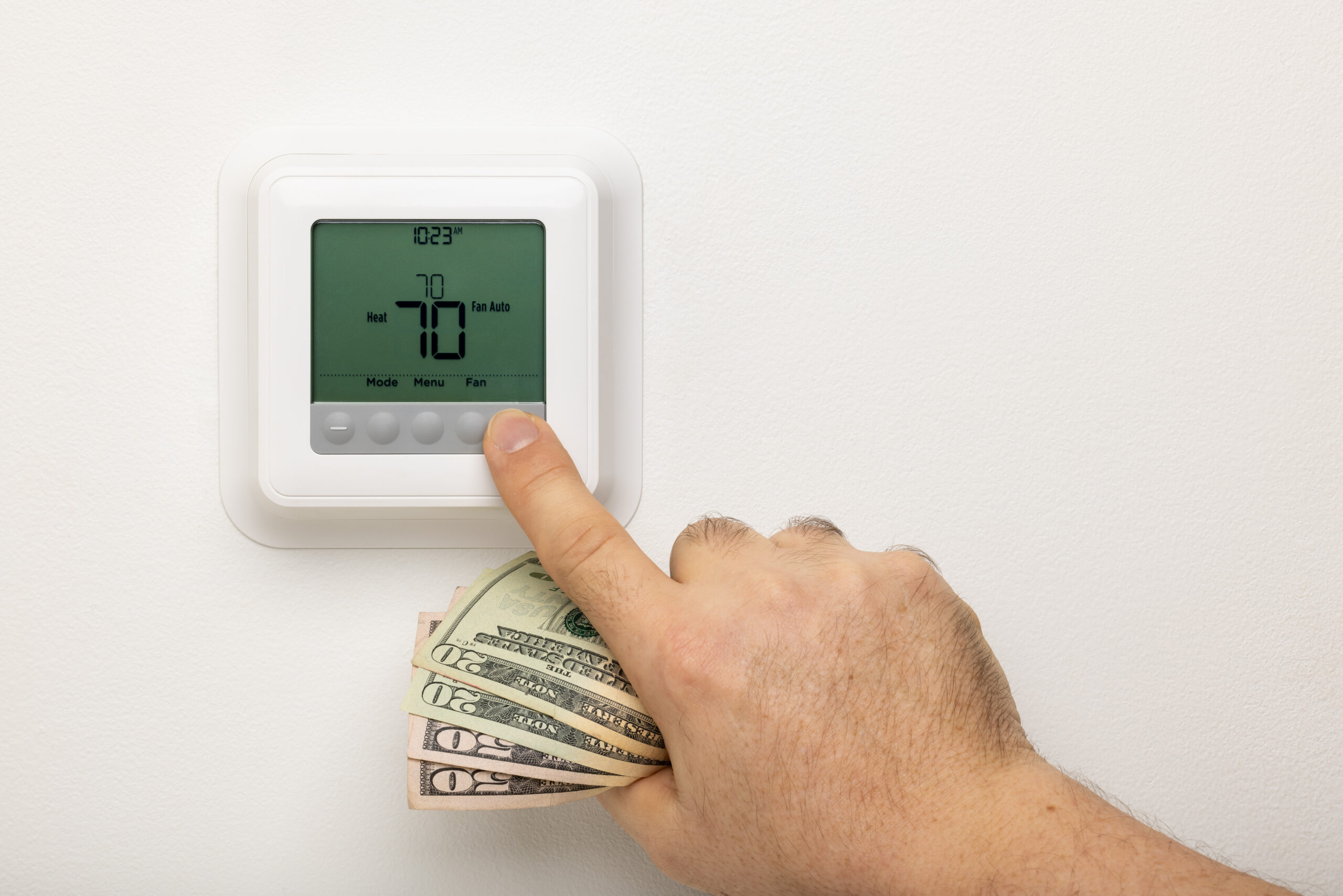
The Cost of Ignoring HVAC Maintenance
Your HVAC system is the unsung hero of your home, keeping you cool in the summer and warm in the winter. However, what happens when we take it for granted and skip regular upkeep? The truth is, neglecting HVAC preventative maintenance can lead to a cascade of problems that cost you more in the long run. From higher energy bills to the risk of costly repairs, skipping maintenance isn’t just inconvenient—it can be expensive. Higher Energy Bills One of the first signs of an HVAC system in need of maintenance is an increase in your energy bills. When your system isn’t running efficiently, it has to work harder to heat or cool your home, which consumes more energy. Dirty filters, clogged ducts, and lack of lubrication can all contribute to poor performance. Over time, these inefficiencies can cause your utility costs to skyrocket. By staying on top of residential HVAC maintenance, you ensure your system runs smoothly and keeps energy costs in check. More Frequent and Expensive Repairs Another costly result of neglecting HVAC maintenance is the increased likelihood of needing expensive repairs. Small issues, like a worn-out filter or a refrigerant leak, can turn into major problems if left unchecked. For example, a neglected system might experience a full breakdown or even cause irreversible damage to components like the compressor or condenser coils. These repairs can be costly, especially if you’re looking at the possibility of replacing major parts. Regular HVAC services can identify minor issues before they escalate, helping you avoid a hefty repair bill down the road. Shortened System Lifespan Your HVAC system isn’t something you want to replace too soon. With proper care, a well-maintained system can last between 15 and 20 years. However, neglecting maintenance can drastically shorten its lifespan. When parts aren’t cleaned, lubricated, or replaced as needed, they wear out much faster. Instead of getting the most out of your investment, you may find yourself needing a costly replacement much sooner than expected. Residential HVAC maintenance isn’t just about keeping your system running; it’s about extending its lifespan and saving you money on premature replacements. Reduced Indoor Air Quality and Health Risks Your HVAC system doesn’t just affect the temperature of your home—it also plays a major role in maintaining indoor air quality. When filters and ducts get clogged with dust, dirt, and debris, those particles are circulated throughout your home, potentially triggering allergies, asthma, or other respiratory issues. Regular maintenance, like cleaning ducts and replacing filters, can help improve the air you breathe and ensure your system is working as it should to keep your environment healthy and comfortable. Safety Concerns (For Heating Systems) If you have a heating system that relies on gas or oil, ignoring HVAC preventative maintenance can pose serious safety risks. Over time, gas connections can deteriorate, leading to gas leaks, and carbon monoxide can build up—both of which are potentially life-threatening. Scheduling regular inspections and maintenance will help ensure your heating system is safe to use and that you’re not unknowingly putting your home or family at risk. Don’t Skip HVAC Maintenance Ignoring HVAC preventative maintenance might seem like a way to save time or money, but in the end, it costs you more. From higher energy bills to the risk of dangerous breakdowns, the price of neglecting your system can be substantial. Protect your home, your wallet, and your family by staying on top of your HVAC services. Not sure where to start? PRK Services offers comprehensive residential HVAC maintenance to keep your system running efficiently and reliably all year long. Don’t wait for problems to arise—schedule a maintenance check today and avoid the hidden costs of ignoring your HVAC system!
Continue Reading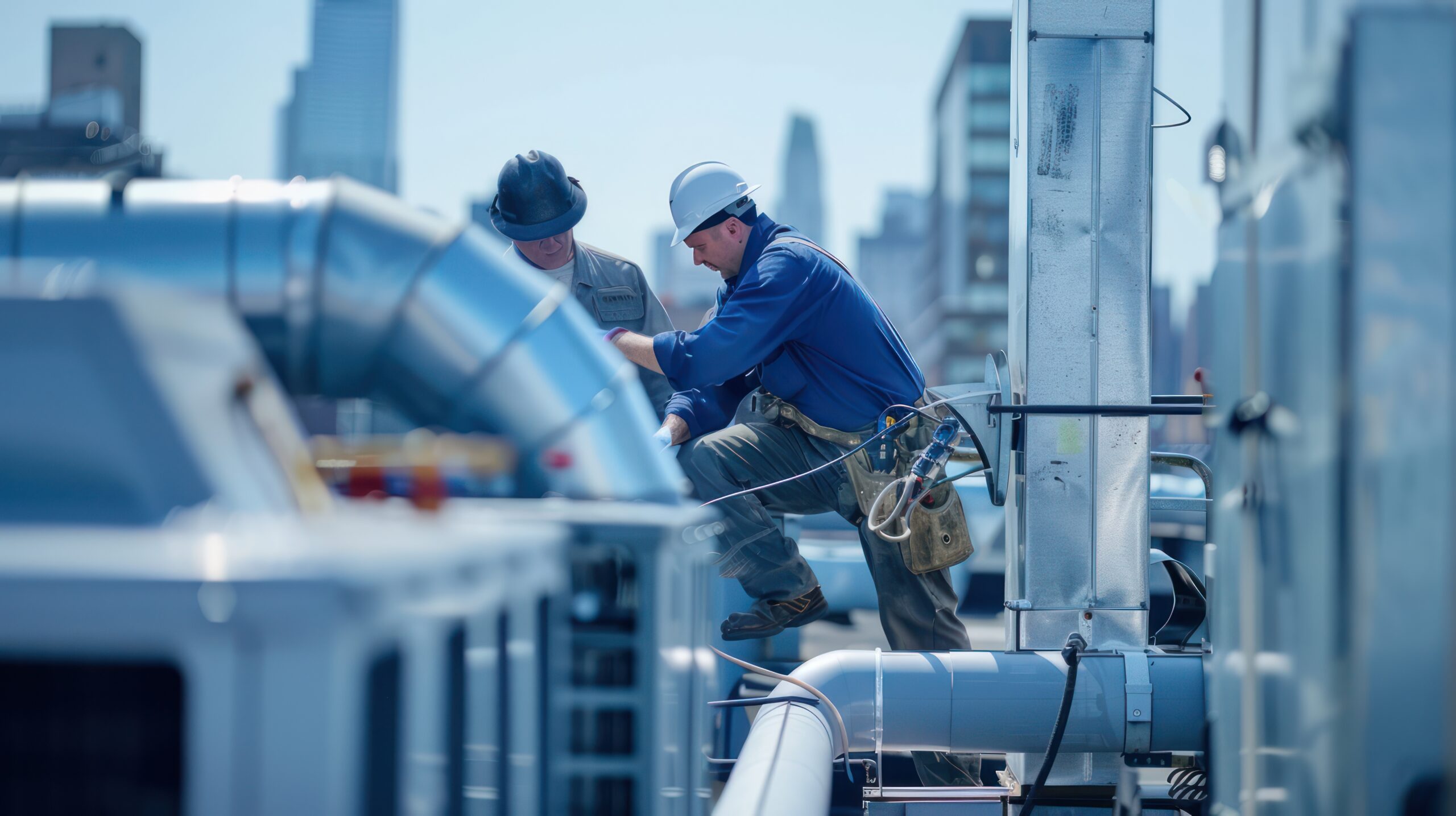
How to Improve Indoor Air Quality in Commercial Buildings
Indoor air quality (IAQ) is often overlooked, but it plays a critical role in the health, comfort, and productivity of employees. For commercial buildings, maintaining high-quality air is essential not only for the well-being of occupants but also for ensuring operational efficiency and meeting regulatory standards. Here are practical steps to improve IAQ in commercial spaces and how PRK Services Inc. can help with your commercial HVAC needs. Why Indoor Air Quality Matters in Commercial Spaces Health Impacts Poor IAQ can lead to respiratory issues, allergies, and conditions like sick-building syndrome. Prolonged exposure to contaminated air can also reduce employee productivity, increase absenteeism, and even cause costly liability issues for businesses. Productivity and Performance Studies show that employees working in spaces with clean, fresh air are more focused, efficient, and less likely to experience fatigue. Improved air quality is directly linked to better cognitive performance, which is crucial for any business. Regulatory and Environmental Concerns Maintaining proper IAQ is also a legal and environmental responsibility. Poor air quality can result in non-compliance with standards set by organizations like OSHA and ASHRAE. Common Indoor Air Quality Challenges in Commercial Buildings Commercial buildings face unique challenges regarding IAQ. Common culprits include inadequate ventilation, buildup of dust and mold, volatile organic compounds (VOCs) from furniture and cleaning products, and outdated HVAC systems. Addressing these issues requires a combination of strategic planning and professional expertise in commercial HVAC services. Strategies to Improve Indoor Air Quality Optimize Ventilation Systems Proper ventilation is the cornerstone of good air quality. Regular maintenance and upgrades to your HVAC system can ensure proper airflow and filtration. PRK Services Inc. specializes in commercial HVAC repair and upgrades to ensure your system operates efficiently and meets industry standards. Incorporate Air Purifiers Investing in advanced air purifiers with HEPA filters can significantly reduce airborne contaminants like dust, allergens, and even harmful microorganisms. Manage Humidity Levels Maintaining the right humidity levels is crucial for preventing mold growth and ensuring comfort. A well-maintained HVAC system plays a vital role in regulating indoor humidity. Our HVAC preventative maintenance services can help you keep these levels in check. Use Low-VOC Materials From paints to cleaning products, choosing low-VOC options can reduce the number of harmful chemicals released into the air. Pair this with regular cleaning to keep surfaces free of dust and other allergens. Schedule Regular HVAC Maintenance Your HVAC system is the backbone of IAQ. Regular HVAC preventative maintenance ensures filters are clean, components are functioning properly, and air circulation remains efficient. At PRK Services Inc., we offer tailored commercial HVAC services to meet the unique needs of your building. Add Indoor Greenery Indoor plants not only beautify the space but also help purify the air by absorbing toxins and releasing oxygen. They’re a natural, cost-effective way to enhance IAQ. Improving indoor air quality in commercial buildings requires a proactive approach. From optimizing ventilation to investing in commercial HVAC repair, every step contributes to a healthier, more productive environment for your team. At PRK Services Inc., we’re committed to helping you breathe easier. With our comprehensive commercial HVAC services, we ensure your system operates at peak performance so you can focus on what matters most—your business. Contact us today to learn how we can transform your indoor air quality!
Continue Reading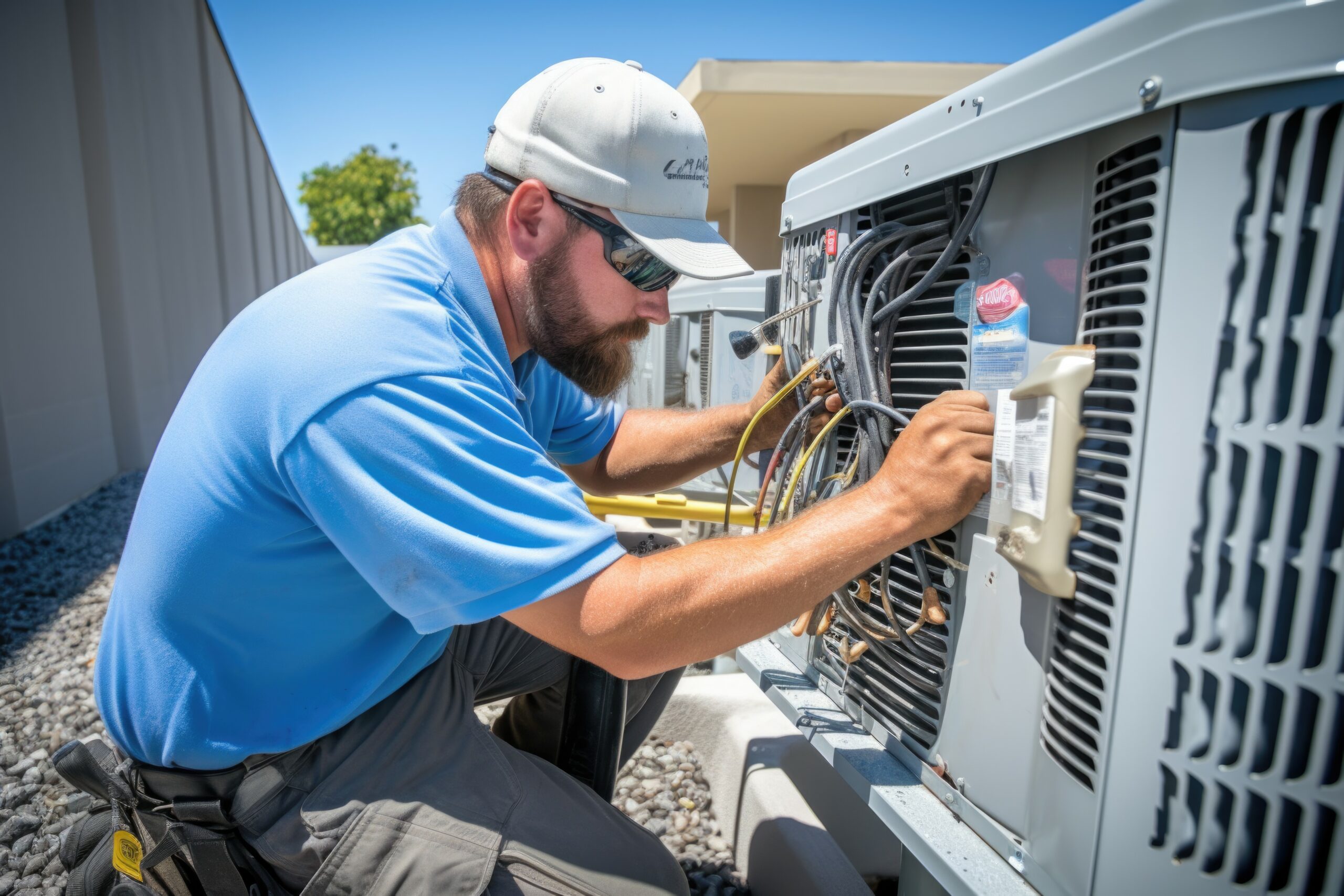
PRK Services Inc.: Your Trusted Partner for HVAC Solutions
When it comes to maintaining comfort and efficiency in your home or business, reliable HVAC services are a necessity. Whether it’s ensuring your home stays cozy in the winter or your office remains cool in the summer, PRK Services Inc. is the partner you can trust. Specializing in residential HVAC, commercial HVAC, and HVAC preventative maintenance, we provide top-notch solutions tailored to your needs. Comprehensive HVAC Services to Meet Every Need Expert HVAC Installation At PRK Services Inc., we excel in professional HVAC installation for homes and businesses. A properly installed system not only delivers optimal performance but also ensures energy efficiency and long-term reliability. Our team works with leading brands to provide state-of-the-art solutions, including eco-friendly options that reduce your carbon footprint and lower energy bills. Residential HVAC Solutions Your home is your sanctuary, and its comfort depends on a well-functioning HVAC system. PRK Services Inc. offers tailored residential HVAC services designed to keep your family comfortable year-round. From efficient heating systems to advanced cooling technologies, we ensure your home is a haven regardless of the season. Commercial HVAC Expertise For businesses, maintaining the right indoor environment is crucial for productivity and customer satisfaction. Our commercial HVAC services are crafted to meet the demands of offices, retail spaces, and industrial facilities. We understand the unique challenges businesses face and provide solutions that balance efficiency, performance, and cost-effectiveness. Reliable HVAC Preventative Maintenance Preventative maintenance is key to extending the lifespan of your HVAC system and avoiding unexpected breakdowns. PRK Services Inc. offers comprehensive HVAC preventative maintenance plans to ensure your system operates at peak efficiency. Regular check-ups and tune-ups minimize costly repairs and keep your system running smoothly. The PRK Advantage Certified Expertise You Can Count On Our technicians are highly trained and certified to handle the latest HVAC systems and technologies. Whether it’s troubleshooting complex issues or installing advanced systems, our team delivers exceptional service with professionalism and precision. Cutting-Edge Technology for Superior Service PRK Services Inc. utilizes modern tools and techniques to provide the best HVAC services in the industry. Our commitment to innovation ensures we stay ahead of industry trends and deliver solutions that are effective and future-proof. Customer-Centric Approach At PRK Services Inc., our customers are at the heart of everything we do. We take the time to understand your needs and deliver solutions that exceed your expectations. Don’t just take our word for it—our long list of satisfied clients speaks to our dedication and quality. A Commitment to Sustainability As the world moves toward greener solutions, PRK Services Inc. is proud to offer energy-efficient and environmentally friendly HVAC services. Our sustainable practices and eco-conscious products help reduce energy consumption while maintaining comfort and reliability. Why PRK Services Inc. Stands Out When you choose PRK Services Inc., you’re selecting a partner with a proven track record of excellence in residential and commercial HVAC. Our expertise, reliability, and commitment to quality set us apart in the industry. Don’t settle for anything less when it comes to your HVAC needs. Contact PRK Services Inc. today to experience the best HVAC installation, maintenance, and services. Let us ensure your comfort and peace of mind all year long.
Continue Reading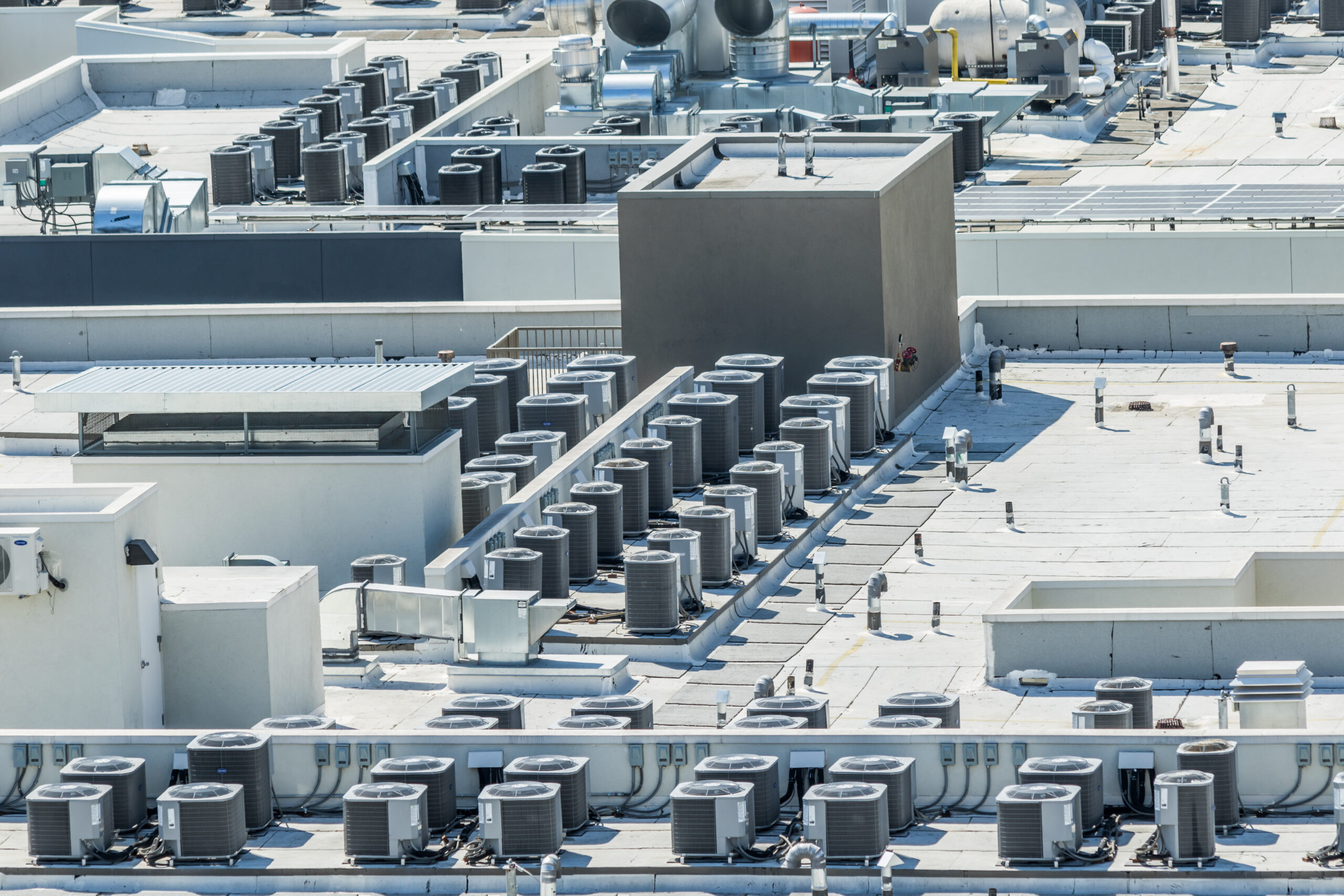
HVAC for Industrial Facilities: Meeting Demanding Needs
In any industrial facility, the HVAC (heating, ventilation, and air conditioning) system plays a critical role in maintaining a comfortable and safe environment for workers while ensuring the smooth operation of machinery. Unlike traditional commercial settings, industrial facilities have unique challenges that demand customized HVAC solutions. Here’s why commercial HVAC systems are vital for industrial facilities and how they can meet the demanding needs of these environments. Understanding the Demands of Industrial HVAC Industrial facilities come with a set of unique requirements that make HVAC systems essential. For one, heavy machinery and equipment generate significant amounts of heat, raising the ambient temperature within the space. Without effective cooling systems, the risk of overheating machinery and impacting worker comfort increases dramatically. This is especially true in environments like factories, warehouses, or chemical plants, where temperature control is critical for equipment longevity and worker safety. Air quality is another critical factor in industrial HVAC. Many industrial settings involve chemicals, dust, fumes, and other airborne particles that can compromise indoor air quality. HVAC systems equipped with advanced filtration and ventilation capabilities help remove harmful particles and provide clean, breathable air for workers. This is crucial not only for health reasons but also for meeting strict environmental and safety standards set by regulations. Energy efficiency is also a primary concern. Industrial facilities often run 24/7, meaning HVAC systems need to be powerful and efficient to minimize energy consumption while maintaining the ideal conditions. With rising energy costs, businesses are looking for ways to cut down on operational expenses, making an energy-efficient commercial HVAC system more important than ever. Key HVAC Solutions for Industrial Facilities To address these unique challenges, industrial facilities often require customized HVAC solutions. Standard commercial HVAC systems may not be sufficient for the larger spaces, heavy machinery, or specialized needs found in industrial settings. Here’s where the right solutions come in: Custom HVAC Designs: Industrial facilities often need HVAC systems tailored to their space and needs. Custom designs can accommodate larger ductwork, higher-capacity units, and special configurations that allow for effective temperature control across large or complex environments. Ventilation and Filtration Systems: Proper ventilation is essential in industrial settings, especially where chemicals or airborne particulates are present. Industrial HVAC systems often incorporate advanced air filters and exhaust systems that keep the air clean and safe for workers. Variable Air Volume (VAV) Systems: These systems are designed to adjust airflow based on the real-time needs of the space. They offer a more energy-efficient way of managing air distribution and can be fine-tuned for different parts of the facility, reducing overall energy consumption. Cooling and Dehumidification: Many industrial facilities deal with heat-sensitive machinery or materials that require precise temperature and humidity control. Industrial HVAC systems can provide cooling and dehumidification, maintaining the ideal climate for people and equipment. Challenges in Maintaining HVAC Systems for Industrial Facilities While a properly designed HVAC system is essential, maintaining it is just as critical. Routine commercial HVAC repair and preventive maintenance are key to ensuring that systems function at peak efficiency. Regular inspections, cleaning, and repairs help prevent system failures and avoid costly downtime. Technology is also playing a significant role in HVAC system management. Many modern systems are equipped with IoT capabilities that allow facility managers to monitor and adjust HVAC performance remotely. These systems provide real-time data that helps with troubleshooting and ensuring that the HVAC system is running efficiently. Additionally, industrial HVAC systems are complex and require specialized knowledge to repair and maintain. When issues arise, timely commercial HVAC repair becomes crucial to avoid disruptions in productivity or risks to safety. Partner with our experts at PRK Services for your industrial HVAC needs.
Continue Reading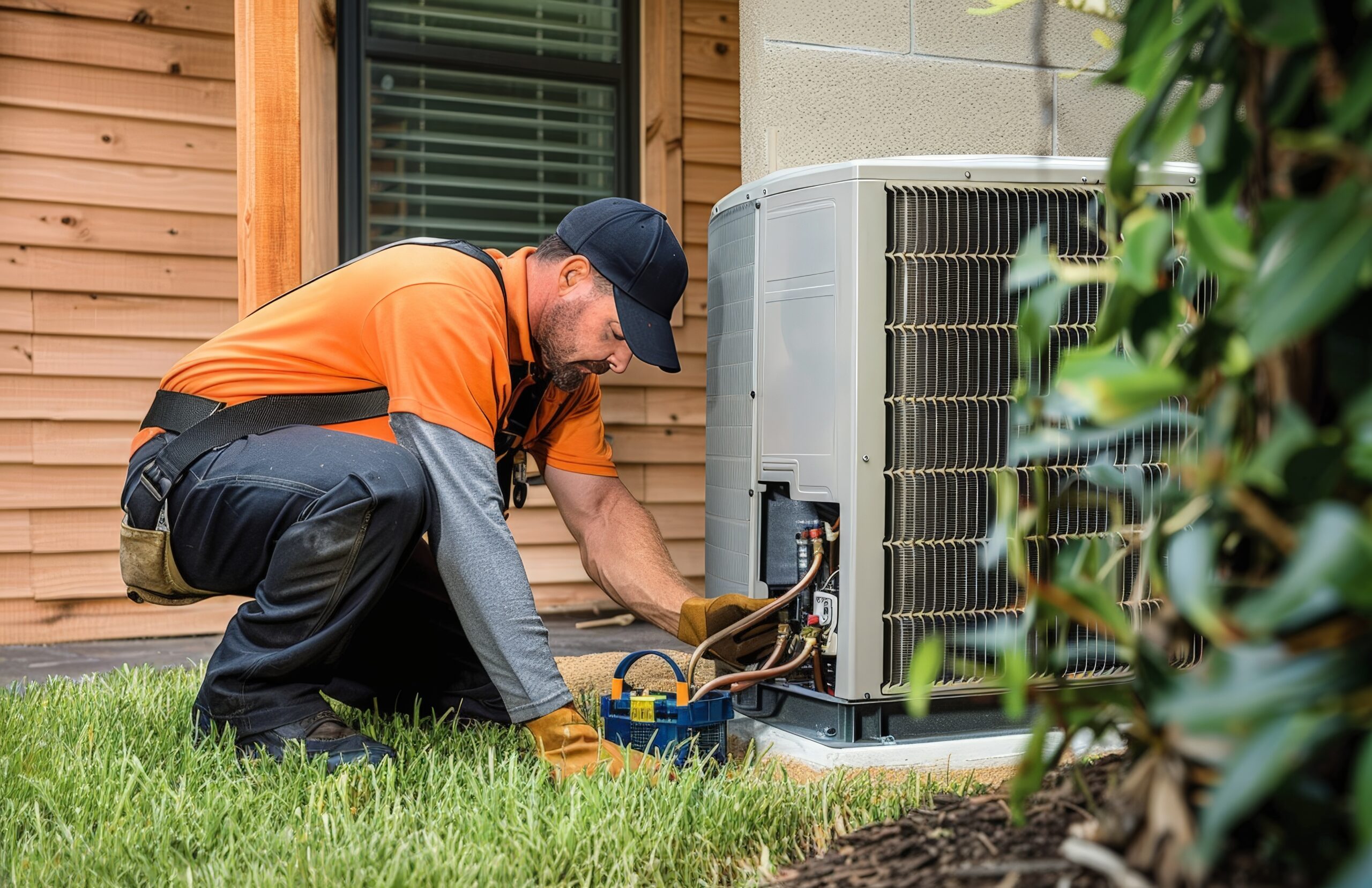
The Chilling Truth: Why Your AC Unit is Freezing Up
As temperatures rise, the last thing you want is for your air conditioner to stop cooling. However, if your AC unit starts blowing warm air or even turns into a block of ice, you’re dealing with a frustrating problem: a frozen AC unit. Not only does this leave your home uncomfortable, but it can also lead to costly repairs if left unchecked. So, why does this happen, and how can you prevent it? Let’s break it down. What Happens When Your AC Freezes Up? When your AC freezes, it’s a sign that something is wrong with the system. You may notice frost or ice building up on the evaporator coils, which restricts airflow and prevents the unit from cooling your home properly. As a result, your system struggles to maintain the desired temperature, leading to poor performance and higher energy bills. Common Causes of a Frozen AC Unit Several factors can cause your AC unit to freeze up, but here are the most common ones: Low Refrigerant Levels Low refrigerant is one of the main culprits behind a frozen AC. When the refrigerant level drops, the evaporator coils become too cold and start forming ice. This is often the result of a leak, which requires professional repair. If you notice warm air coming from your vents or hear a hissing sound, it’s a sign that your refrigerant may be low. Dirty Air Filters Air filters are crucial in maintaining airflow throughout your AC system. Over time, filters can become clogged with dust and debris, causing airflow to slow down. Without proper airflow, the coils can freeze. Regular HVAC tuneups, which include changing air filters, can help prevent this issue. Blocked or Dirty Coils If your evaporator coils are dirty or blocked, they won’t be able to absorb heat properly. This can cause the temperature to drop too low, leading to ice buildup. Keeping your coils clean is an essential part of HVAC preventative maintenance that can extend the life of your system. Poor Airflow (Blower Fan Problems) A malfunctioning blower fan can also result in low airflow, causing the coils to freeze. If the fan is not circulating air properly, the cooling process becomes inefficient, and your AC can freeze up. Thermostat Issues or Incorrect Settings Sometimes, a faulty thermostat or incorrect settings can cause the unit to run too cold. If you’ve accidentally set your thermostat too low, it may lead to the formation of ice on the coils. How to Prevent Your AC from Freezing Up Preventing a frozen AC unit is all about proactive care. Regular HVAC preventative maintenance is key to keeping things running smoothly. Here are some simple steps to keep your system in check: Change air filters regularly to ensure proper airflow. Schedule an HVAC tuneup at least once a year to keep your system in optimal condition. Keep the thermostat at a reasonable setting to avoid freezing your system. Clean the coils and check for any dirt or debris that might obstruct airflow. Ensure your system is properly sized for your home to prevent overworking the unit. What to Do if Your AC Is Already Frozen If your AC unit is already frozen, turn it off and let it thaw. This will help prevent further damage. Once the ice has melted, check the air filters and airflow. If the problem persists, it’s time to call a professional HVAC technician to assess and repair the issue. When to Call a Professional If your AC keeps freezing up, it’s a clear sign that something more serious is wrong. Whether it’s a refrigerant leak, a damaged blower fan, or another complex issue, a professional HVAC technician can diagnose and fix the problem. HVAC tuneups and inspections can help spot potential issues before they turn into costly repairs. Contact PRK Services if you need help with your AC unit.
Continue Reading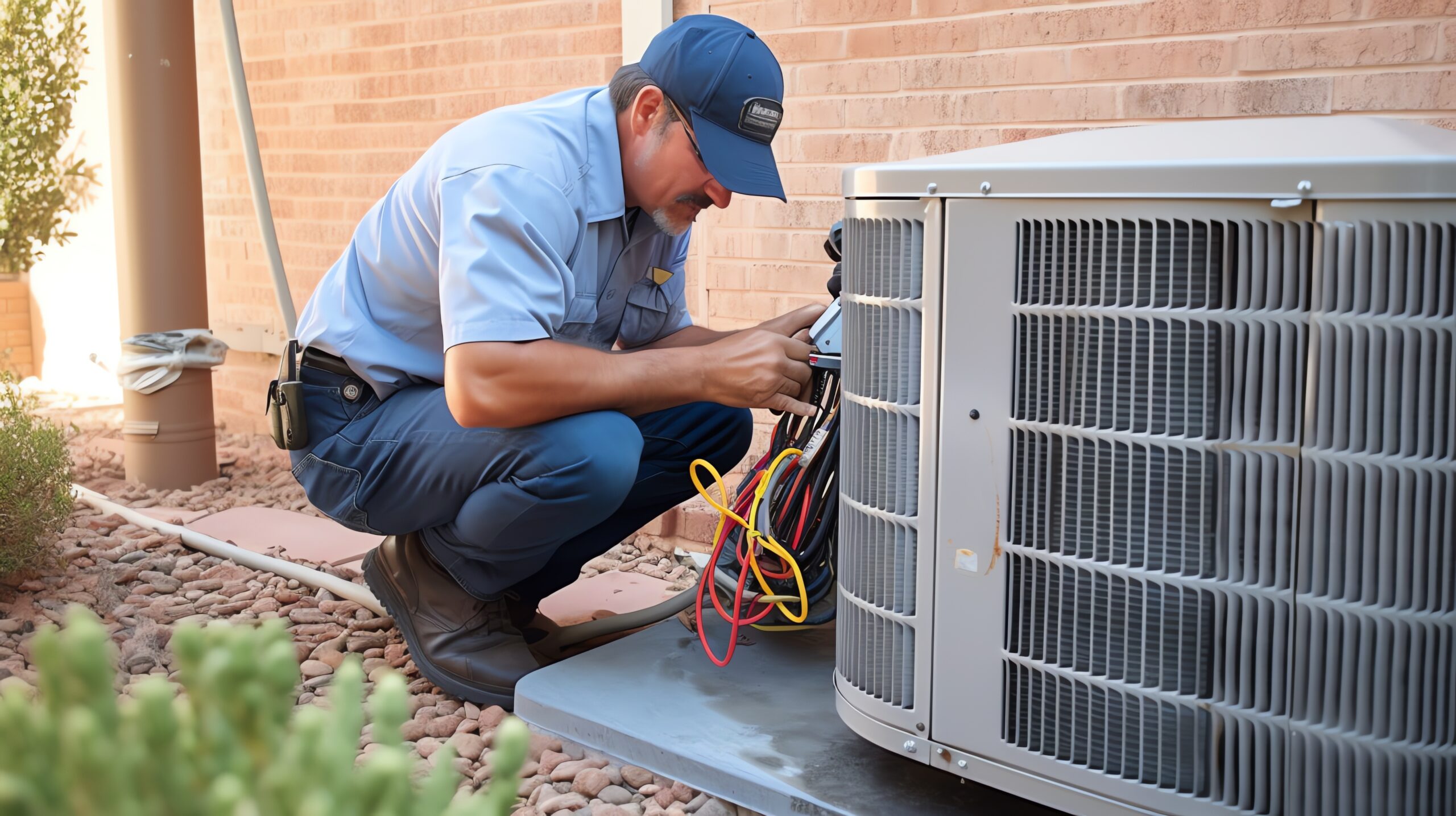
The Importance of Regular HVAC Tune-Ups
Your HVAC system works tirelessly to keep your home comfortable all year round. From blazing summer days to chilly winter nights, it ensures you and your family stay cozy. However, like any machine, your HVAC system needs regular care to keep running smoothly. That’s where an HVAC tune-up comes in! Here’s why HVAC preventative maintenance isn’t just a good idea but an essential part of homeownership. Benefits of Regular HVAC Tune-Ups Enhanced Energy Efficiency An HVAC tune-up helps keep your system running as efficiently as possible. Dust and debris can collect over time, resulting in clogged filters and coils. This issue forces your HVAC unit to work harder. This extra effort requires more energy, which translates to higher utility bills. With regular tune-ups, your system stays clean and optimized, using less energy and saving you money. Extended Lifespan of Equipment Preventative maintenance for your HVAC system can add years to its life. Tune-ups address minor issues before they become big problems that could lead to costly repairs or premature replacement. Just as regular oil changes keep a car running longer, HVAC tune-ups help extend the life of your heating and cooling equipment. Improved Indoor Air Quality Your HVAC system doesn’t just control temperature—it also filters and circulates the air inside your home. When filters are dirty or components are clogged, your system can start circulating allergens, dust, and other particles. Regular HVAC tune-ups improve indoor air quality by keeping these contaminants out, which is especially important for households with allergies or asthma. Consistent Comfort Levels A well-maintained HVAC system provides steady and reliable temperature control. When your system is in good shape, it heats and cools your home evenly, helping prevent those uncomfortable hot or cold spots. Preventative maintenance ensures consistent airflow and comfort throughout your home. Early Detection of Potential Issues One of the biggest advantages of a regular HVAC tune-up is catching small issues before they turn into big headaches. For instance, a minor refrigerant leak can quickly turn into a costly problem if left unchecked. During a tune-up, HVAC technicians can identify and address these small issues early, saving you from surprise breakdowns and major repairs down the road. Environmental Benefits Maintaining an energy-efficient HVAC system isn’t just good for your wallet; it’s also beneficial for the environment. Efficient systems consume less energy, reducing your carbon footprint. Plus, tune-ups can prevent refrigerant leaks that could harm the environment, making HVAC preventative maintenance a green choice. Consequences of Skipping Regular HVAC Tune-Ups Skipping HVAC tune-ups can lead to higher energy bills, increased risk of breakdowns, and even potential health risks from poor indoor air quality. A neglected system has to work harder to perform basic functions, which not only raises your monthly costs but can also wear out the equipment faster. Without preventative maintenance, your HVAC system may need more frequent repairs and could require a replacement sooner than expected. Signs Your HVAC System Needs a Tune-Up If you’re noticing higher energy bills, unusual noises, inconsistent temperatures, or reduced airflow, it may be time for a tune-up. These signs suggest your system is struggling and could benefit from a professional inspection. Investing in regular HVAC tune-ups is one of the smartest steps you can take as a homeowner. Not only will it help your system run more efficiently, but it also ensures your comfort, saves on repair costs, and contributes to a healthier environment. If it’s been a while since your last tune-up, consider scheduling one with PRK Services to keep your home’s HVAC system in top shape year-round.
Continue Reading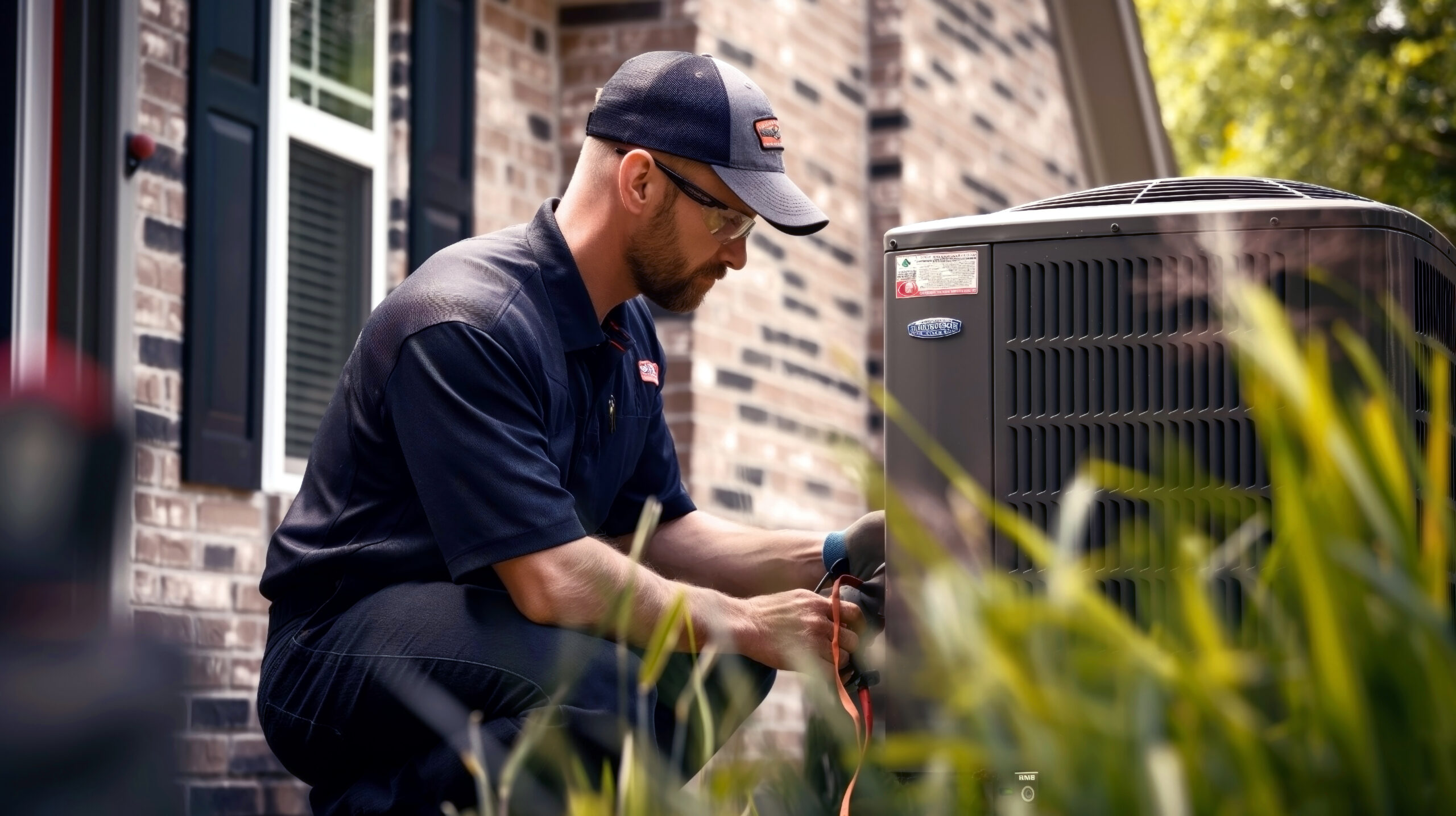
5 Signs You Need a New HVAC System
A reliable HVAC system is essential for keeping your home comfortable year-round and managing energy costs. However, even the best HVAC systems wear out over time, and knowing when to replace them can save you from the hassle of sudden breakdowns or skyrocketing bills. At PRK Services, we often see homeowners needing clarification on whether they need a new HVAC installation or if repairs will do the trick. Here are five clear signs that it might be time to consider a residential HVAC replacement. Rising Energy Bills If your energy bills are unexpectedly rising beyond normal rate increases, your HVAC system could be to blame. As heating and cooling systems age, they lose efficiency and require more energy to maintain the same level of comfort. By comparing recent bills to ones from previous years (in similar seasons), you may spot unexpected spikes. An aging HVAC system needs to work harder to maintain your desired temperature, which directly affects your energy costs. If you’re seeing this pattern, it might be time to think about a new HVAC installation. Frequent Repairs and Breakdowns As HVAC systems age, the need for repairs becomes more frequent. While minor fixes are sometimes all you need, constant breakdowns can be a sign that your system is nearing the end of its lifespan. The cost of continuous repairs can add up quickly, and you might find that, over time, they approach the cost of a new system altogether. If your HVAC system requires repairs more than twice a year, it’s likely worth looking into a residential HVAC replacement for a more reliable, long-term solution. Uneven Temperatures in Your Home One telltale sign of a failing HVAC system is the presence of hot or cold spots throughout your home. Ideally, your HVAC system should evenly distribute warm or cool air across every room. When it doesn’t, your system may be struggling to do its job properly due to age or wear. While it’s worth checking for simple issues like blocked vents or dirty filters, if the uneven temperatures persist, it could be a sign that your HVAC system is ready for an upgrade. Strange Noises or Smells Unusual noises—like banging, rattling, or hissing—or strange odors from your HVAC system are often signs of trouble. These signs could indicate worn-out parts, dust and debris buildup, or even mold issues. Unusual odors, especially burning or musty smells, may indicate serious problems that could pose a safety risk to your household. If you notice any of these, it’s best to call HVAC services to evaluate your system and determine if replacement is the best course of action. Age of the System Finally, one of the simplest indicators that you may need a new HVAC system is age. Most HVAC systems last between 10-15 years with regular maintenance. After that, even the most well-maintained systems lose efficiency and performance. If your system is over a decade old, it may be more cost-effective to replace it rather than continue to pay for repairs and live with reduced performance. Upgrading your HVAC system can also improve energy efficiency, lowering utility bills and providing a more comfortable living space. Considering a New HVAC System? If any of these signs sound familiar, it might be time to consult with a professional. PRK Services offers comprehensive HVAC services, including residential HVAC replacement and HVAC installation, to help you enjoy a more efficient, reliable system. A new system is an investment that can increase your comfort, reduce energy costs, and bring you peace of mind for years to come.
Continue Reading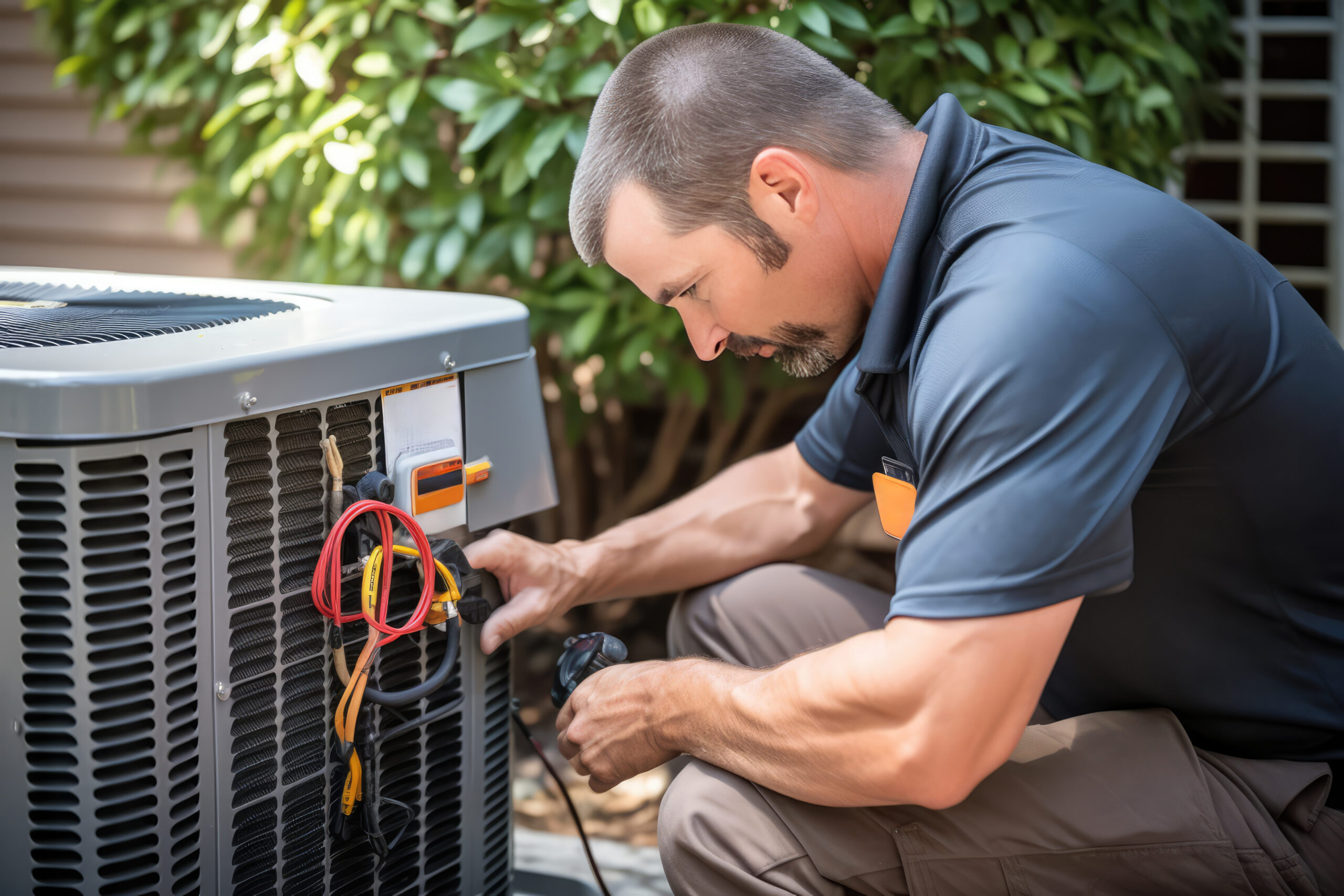
Preparing Your HVAC System for Texas Winter
With winter just around the corner, it’s essential to consider how to prepare your HVAC system for the heating season. Scheduling residential HVAC maintenance is just one way to get your system ready to maintain comfort as the temperature drops. However, HVAC preventative maintenance is only one part of what you should do. The following tips will help you prepare your HVAC system for the Texas winter weather. Schedule Professional Maintenance While you can take some steps yourself, such as replacing your air filter, professional HVAC preventative maintenance is still essential. An HVAC company has the expertise and training to identify potential problems with your unit and complete any necessary repairs to get the system in good working order before the heating season begins. Proper HVAC maintenance keeps systems running efficiently and reduces the risk of breakdowns. Insulate Your AC Lines One step you can perform yourself is insulating your AC lines. This step will help protect your AC lines from damage during cold weather. Inspect the existing insulation and remove any worn-out or damaged insulation. Clean and dry the lines before applying new foam insulation around the pipe. You may need to use tape to hold the foam in place. Make sure the entire line is covered. Cover The Unit In Fall, Not Winter Fall is a time when fallen leaves and other debris can clog the outdoor components of your HVAC system. Covering your unit during this time of year is recommended to keep this debris out. However, once the fall season is over, remove the cover as part of your residential HVAC maintenance. These units can withstand winter weather conditions. Keeping it covered increases the risk of moisture buildup and related damage. Consider A Ventilated Shelter Just because you remove the cover on your outdoor HVAC unit doesn’t mean it doesn’t deserve some protection. You may want to consider installing a ventilated shelter that protects your unit while maintaining airflow. The walls and top of this shelter should be at least three to five inches from the unit and should be removed when spring arrives. Test Your Thermostat Testing your thermostat as part of your HVAC preventative maintenance tells you two things. First, you will need to check if the thermostat turns on your furnace. It should trigger within five minutes of turning it on. Secondly, wait to see if the furnace turns off at the desired temperature. If either of these things doesn’t happen, you should call for service. Change The Filter A change in the seasons is a good time to change your air filter. This essential maintenance task maintains clean air in your home and keeps your system running efficiently, reducing the risk of breakdowns. Check your owner’s manual or ask your maintenance team how often your air filter should be replaced. Preparing your furnace for the winter months is essential to ensure it’s ready to go when the temperature drops. Residential HVAC maintenance is just part of the process. When you’re ready to schedule your HVAC preventative maintenance, contact PRK Services, Inc. to help you get ready for the heating season.
Continue Reading
